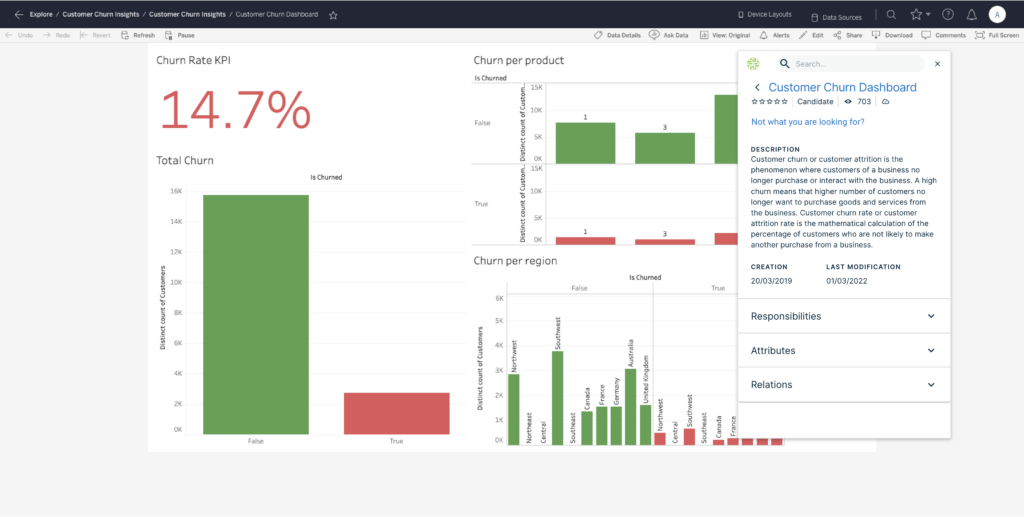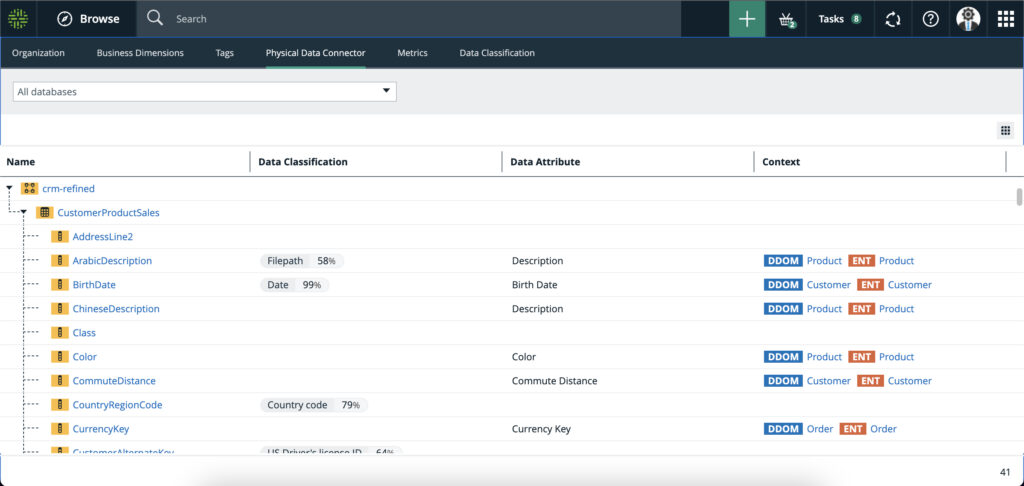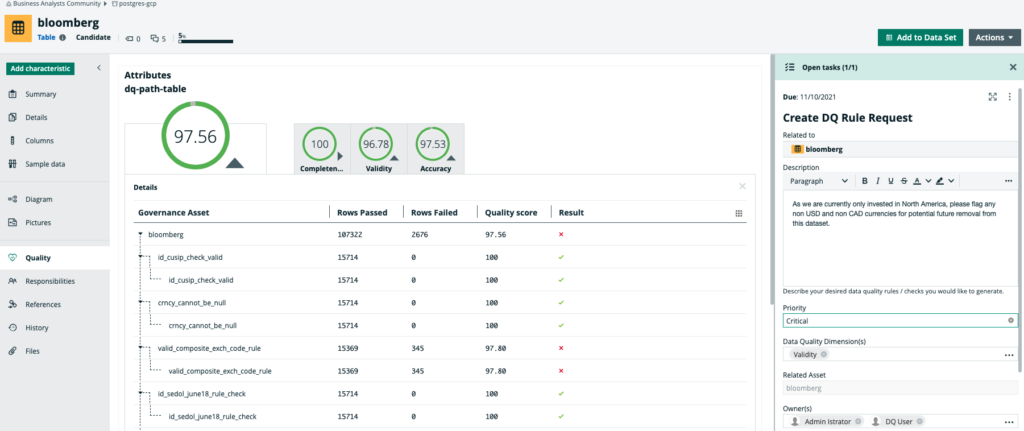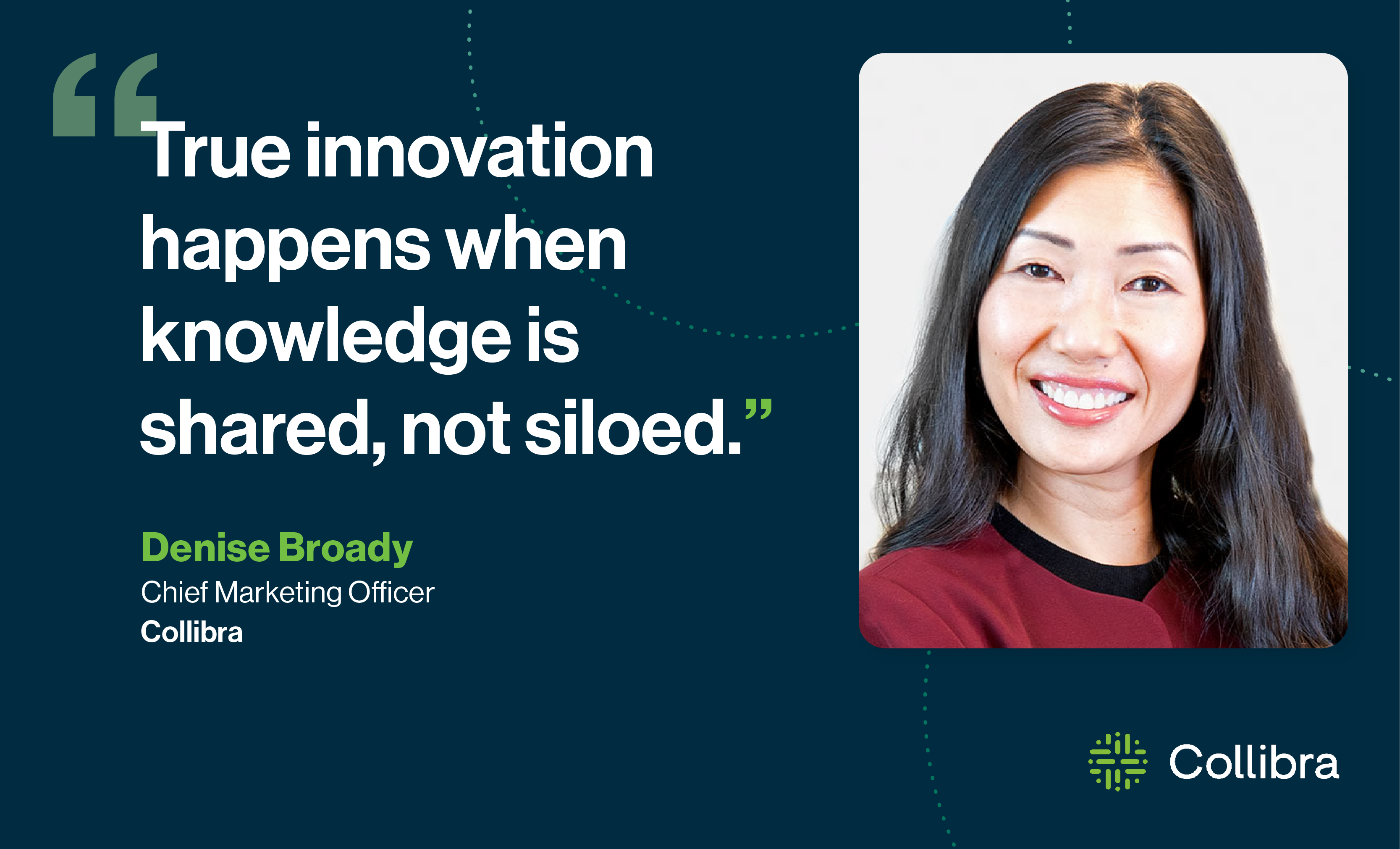Collibra Data Intelligence Cloud unifies data catalog, governance, data lineage, data quality and data privacy capabilities in one complete, flexible and easy-to-use platform. The latest release of Collibra Data Intelligence Cloud delivers new capabilities that deepen the context about data and boost productivity, helping fuel data-driven decisions and innovation. Keep reading to learn how we’ve leveled up our cloud intelligence platform!”
Deeper context and clarity around data
With so much data across an organization, it’s hard for employees to find available data, understand that data and know if they can trust it. With the following product updates, you can provide more context and clarity about data to all your employees — driving more understanding and trust in data, improving productivity and empowering employees to use data for innovation.
New Collibra Everywhere browser extension
Often, employees waste precious time trying to understand data and reports. Our new Collibra Everywhere browser extension, which is currently in beta, conveniently surfaces context about data from within popular enterprise web apps and BI tools, helping employees quickly understand the content they are consuming.
Business analysts can quickly understand Tableau and Power BI reports with the appropriate business and technical context, such as definitions, ratings, source information and related assets, at their fingertips. The extension also works with many commonly-used web apps, including Confluence, Salesforce, Jira, ServiceNOW, Snowflake, Sharepoint and online query editors, allowing users to highlight text and quickly pull up the information they need from Collibra.

Use the browser extension to better understand your Tableau report
New capabilities that automate stewardship tasks and improve the user experience
We’ve also introduced new capabilities that boost productivity for data stewards by helping them to quickly and easily add business context to cataloged metadata at scale. This further automates data curation and reduces the manual work stewards undertake to categorize and organize technical metadata.
After automatic data classification is run on technical metadata that has been cataloged, data stewards can use our guided stewardship features, the physical data connector and classification dashboard, to connect that technical metadata to the logical and conceptual models — thereby adding the business context that makes metadata easily searchable and understandable by all users.

Easy-to-use interface to add business context to metadata
We’ve also introduced UI improvements that allow you to better visualize and understand relationships across all of your data assets. Our asset grid feature enables you to present and share data in such a way that users can see relationships across many thousands of assets at the same time. It makes data more accessible to users, helping them perform additional use cases that depend on understanding relationships across large numbers of assets, such as data exploration, impact analysis, and status reporting.
![Example of an asset grid that shows [ ]](https://www.collibra.com/wp-content/uploads/Asset-grid-data-owners-ok-resolution-1024x525.png)
An example of an asset grid that identifies data owners for different databases
New Collibra Data Quality & Observability capabilities
As the list of discoverable data types grows, the compute challenge increases, leading to inefficient and unscalable data discovery and data quality enforcement. New to Collibra Data Quality & Observability are auto-validation rules that allow you to scale sensitive data discovery and data quality enforcement by classifying datasets as data categories, recognizing columns semantically and labeling columns with sensitivity tags.
We’ve also released DQ workflows that help data stewards quickly create and manage data quality remediation and rule creation/modification requests within Collibra Data Intelligence Cloud as well as receive notifications on rule metrics. Before, data stewards would struggle to collaborate with their peers when critical data quality issues were identified. With DQ workflows, data stewards can now centralize and prioritize all data quality requests within Collibra Data Intelligence Cloud, facilitating quicker data issue remediation.

DQ workflow used to create and manage data quality rules
Wider enterprise data visibility with new and expanded integrations
Adding to our many native integrations, we are expanding our Tableau integration and adding support for Matillion, widening enterprise data visibility for our customers by ensuring they integrate and visualize the metadata and lineage from all their systems and tools in one central location.
Expanded Tableau integration
Most organizations use BI tools like Tableau, with multiple analysts building reports and dashboards. But these reports are usually siloed, and there is little visibility into where the data came from or the definitions of the terms and metrics within the report. With the Collibra + Tableau integration, we solve this problem by cataloging your Tableau reports and dashboards, bringing context and trust to them and enabling them to be shared and used widely.
In our latest release, we’ve enhanced our Tableau integration so that you can derive even more value from your Tableau data. This improved integration allows your teams to get more visibility and deeper insights into your Tableau reports, with expanded data source connectivity and a complete view of business and technical lineage. The integration is easy to set up and automatically stitches information together to provide users easy access to all the information they need about their Tableau data and reports — allowing them to better understand and trust reports and use them to drive smarter business decisions.

Users get a clear diagram view of Tableau data
New Matillion integration
We are also introducing a new native integration with Matillion. ETL processes can be black boxes, but it’s important to understand the transformations that data goes through as it flows from system to system. Our integration enables you to automatically extract lineage information from Matillion ETL jobs into Collibra, so you can more fully trace your data transformations and flows. This provides a clear and consistent view of data coming from Matillion and more complete, end-to-end visibility into data lineage.
Maximize the value of your data
To help you efficiently plan, design and execute on your data intelligence strategy, Collibra has also launched new services and learning paths for customers. These new programs accelerate your time to value with Collibra by ensuring that you have the support and knowledge needed to effectively onboard teams onto Collibra and accelerate adoption of the platform.
- Our new Foundation and Strategy Service helps customers with strategic planning efforts including roadmapping, use case prioritization and implementation services.
- Our Resident Architect Program is available to support customers with a dedicated architect to help strengthen their internal Collibra capabilities and accelerate use case implementation and roll out over the course of one year.
- The Data Quality Virtual Lab is a hands-on course that allows customers to practice creating and running data quality checks, reviewing and analyzing reports and scorecards as well as configuring and managing rules and alerts.
Learn more
This is just an introduction to innovations we have released, so we invite you to join us on March 15 at our webinar “What’s new with Collibra Data Intelligence Cloud” to learn more and see these capabilities in action!
You can also join us at webinars we are hosting with Tableau and Matillion to learn more. And keep an eye out for blogs we will publish over the next few weeks that will go in depth into some of these new capabilities!




